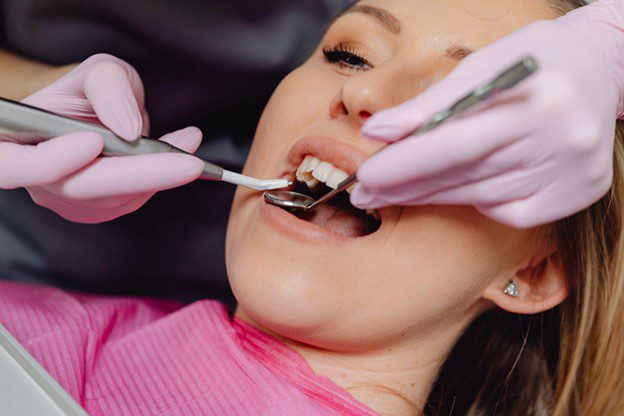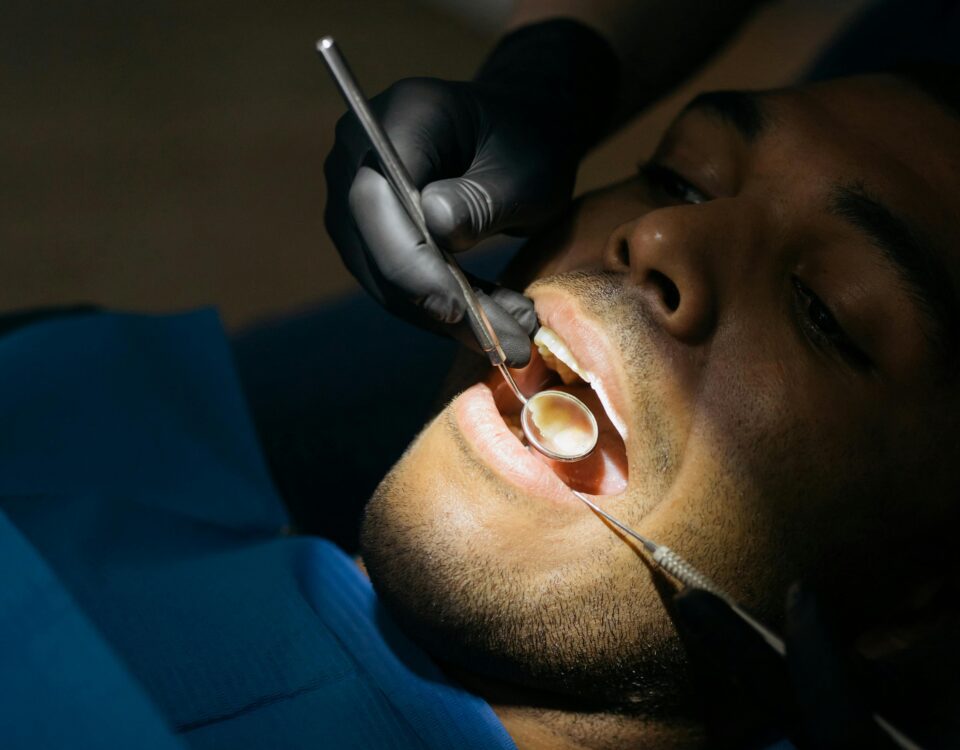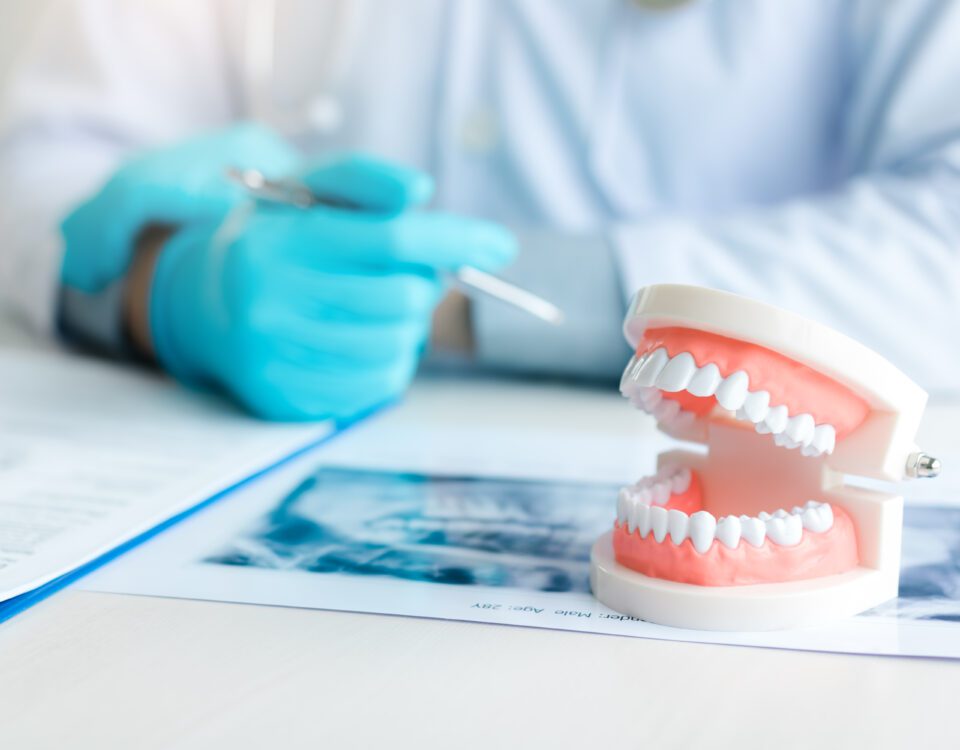
Integrating Orthodontics with Other Services for Comprehensive Dental Care
January 9, 2024
Comparing Dental Implants and Dentures to Choose the Right Option for You
March 4, 2024
In dentistry, restorative procedures are pivotal in maintaining oral health and enhancing the quality of life for individuals with dental issues. The Importance of crowns and bridges are indispensable to restorative dentistry, offering effective solutions for damaged or missing teeth. In recent years, implants have reduced the prevalence of bridges for the replacement of missing teeth, but bridges can still be effective options for many cases.
Continue reading as we explore the importance of crowns and bridges in restorative dentistry, shedding light on their benefits and transformative impact on an individual’s oral well-being.
Crowns: Reinforcing Dental Structures
Dental crowns (also called caps historically) are custom-fitted prosthetics designed to cover a damaged, weakened tooth, one with a large existing filling or repeated fillings, restoring its strength, functionality, and appearance. This restorative option is also recommended usually when a tooth has had a root canal. Crowns serve as more comprehensive protective restorations preventing further damage, allowing for more confident function, and improving the odds of retaining natural teeth long-term.
Dental crowns are crafted from various materials such as porcelain, ceramic blends, and metal alloys and allow dental professionals to choose the most fitting option tailored to the patient’s specific needs. Porcelain crowns can closely replicate natural color and translucency ensuring a harmonious blend with the existing dentition. Metal-based crowns allow for certain functionality and accommodation for challenging occlusion or spacing. Selecting the appropriate material for crowns depends on two key factors: the location in the mouth (molars vs. front teeth, for example) and the intended purpose of the crowns (for example, covering a discolored tooth or anchoring a crown, allowing for better retention of a bridge or partial denture, or both).
When Are Dental Crowns Considered?
Dental crowns might be recommended to:
- Fill gaps restored by a dental implant.
- Protect a tooth treated with a root canal.
- Strengthen a tooth weakened by cracks, cavities, big fillings, or injury.
- Support regular dental bridges for replacing missing teeth.
- Conceal and enhance the look and form of teeth that are severely discolored or misshapen.
Bridges: Filling the Gaps
In simple terms, dental bridges replace one or more missing teeth. These restorations consist of pontics (artificial teeth in the place of missing teeth) anchored on either side of the “space” by dental crowns or implants. Beyond the obvious cosmetic benefits of filling gaps and enhancing smiles, bridges play a crucial role in functional oral health. When a tooth is lost, adjacent teeth may gradually shift into the space, causing misalignment and bite issues, and also bear more of the chewing burden. Dental bridges mitigate such complications while addressing spacing and alignment. This contributes to a harmonious smile and ensures that the surrounding teeth remain in optimal positions minimizing the risk of further dental problems.
Aesthetically Pleasing Results
The benefits of crowns and bridges extend beyond function and health and contribute to aesthetic improvements. Damaged or missing teeth can impact an individual’s self-esteem and confidence.
Crowns and bridges, designed to match existing teeth’s natural color and shape, can provide seamless and aesthetically pleasing results. Restoring a complete and attractive smile can have a positive psychological impact, boosting self-confidence and promoting well-being.
For a smile that radiates confidence and comprehensive oral health, the team at Southpoint Family Dentistry is ready to help you. Experience personalized care and potentially transformative results at our modern, clean facility. Schedule your consultation today!



